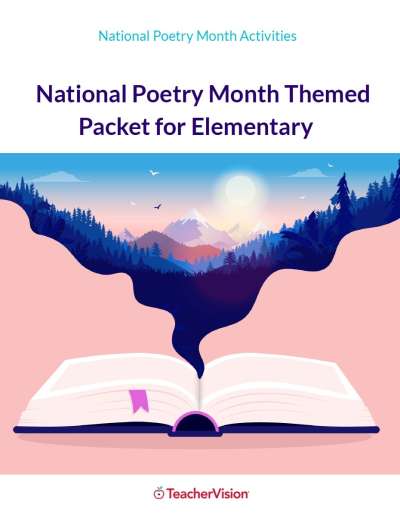Objectives
- Students will use both print and Internet sources to research griots and the tradition of storytelling in Africa.
- Students will share the tales they find.
- Students will draw conclusions about African culture as revealed by folktales.
Materials
- Internet Access
- Reference materials
Procedures
- Tell students that a griot is an African storyteller.
- Explain that griots are very wise people who use the art of storytelling and music to share the history of Africa.
- Talk about where students might find information about griots (books, encyclopedias, Internet).
- Encourage students to think about what they would like to learn about griots.
- Help students identify keywords they might use as they search for information.
- Help them formulate questions to guide their research.
- Have students use their African tales to draw conclusions about African culture.
- Encourage them to share their conclusions.
- Their presentations might take the form of:
- a book of African folktales with information about African culture.
- a storytelling session where they choose one or two tales and become a griot, telling the tales with a dramatic effect.
- Invite students to share their conclusions with the class.
Extension Activities
- Encourage students to link the folktales to the geography of Africa. How, for example, do certain folktales reflect the land? The climate?
- Have students select several folktales and create illustrations for them. Invite them to help you make and label a display of the stories and drawings.
- Students may enjoy turning folktales into plays to perform for the class.
- Remind students that griots preserved the history of their people. Encourage students to record some family history that they think is important to understanding their culture and their families. They can involve parents, grandparents, and other relatives by having them tape record stories. They may want to create family trees in conjunction with their collecting of stories.
Standards Correlations
- National Education Technology Standards
- practice responsible use of technology systems, information, and software.
- use productivity tools to collaborate in constructing technology-enhanced models, preparing publications, and producing other creative works.
- use technology to locate, evaluate, and collect information from a variety of sources.
- evaluate and select new information resources and technological innovations based on the appropriateness to specific tasks.
- predict how data and experiences may be interpreted by people from diverse cultural perspectives and frames of reference.
- apply an understanding of culture as an integrated whole that explains the functions and interactions of language, literature, the arts, traditions, beliefs and values, and behavior patterns.
- compare and analyze societal patterns for preserving and transmitting culture while adapting to environmental or social change.
Students:
National Council for the Social Studies
Students:
- skillfully crafts questions that can guide an inquiry process.
- seeks out, evaluates, and uses appropriate sources to answer questions.
- adeptly synthesizes information found during research and is able to draw valid conclusions.
- has a thorough understanding of how African folktales reflect elements of African culture.
- creates questions to guide the inquiry process.
- uses appropriate sources to find the answers to the questions.
- synthesizes information found during research and draws valid conclusions.
- understands how African folktales reflect elements of African culture.
- needs some prompting when developing questions to guide research.
- finds sources of information that may or may not match the research purpose.
- draws conclusions from research but may or may not support them with evidence.
- attempts to explain how African culture is reflected in African folktales.
- has difficulty formulating questions to guide research.
- needs peer or teacher assistance to complete the research process.
- is unable to draw conclusions.
- has difficulty connecting African folktales with African culture.
Use the following rubric to evaluate students' work in completing this Internet Inquiry.
4 Exemplary
Student:
3 Competent
Student:
2 Developing
Student:
1 Emerging
Student:
Students will use the Internet to find out more about griots, or African storytellers. Their work will culminate in presentations about African culture as it is told through tales.
Themes
Holidays
TYPE:
Teaching Strategies



